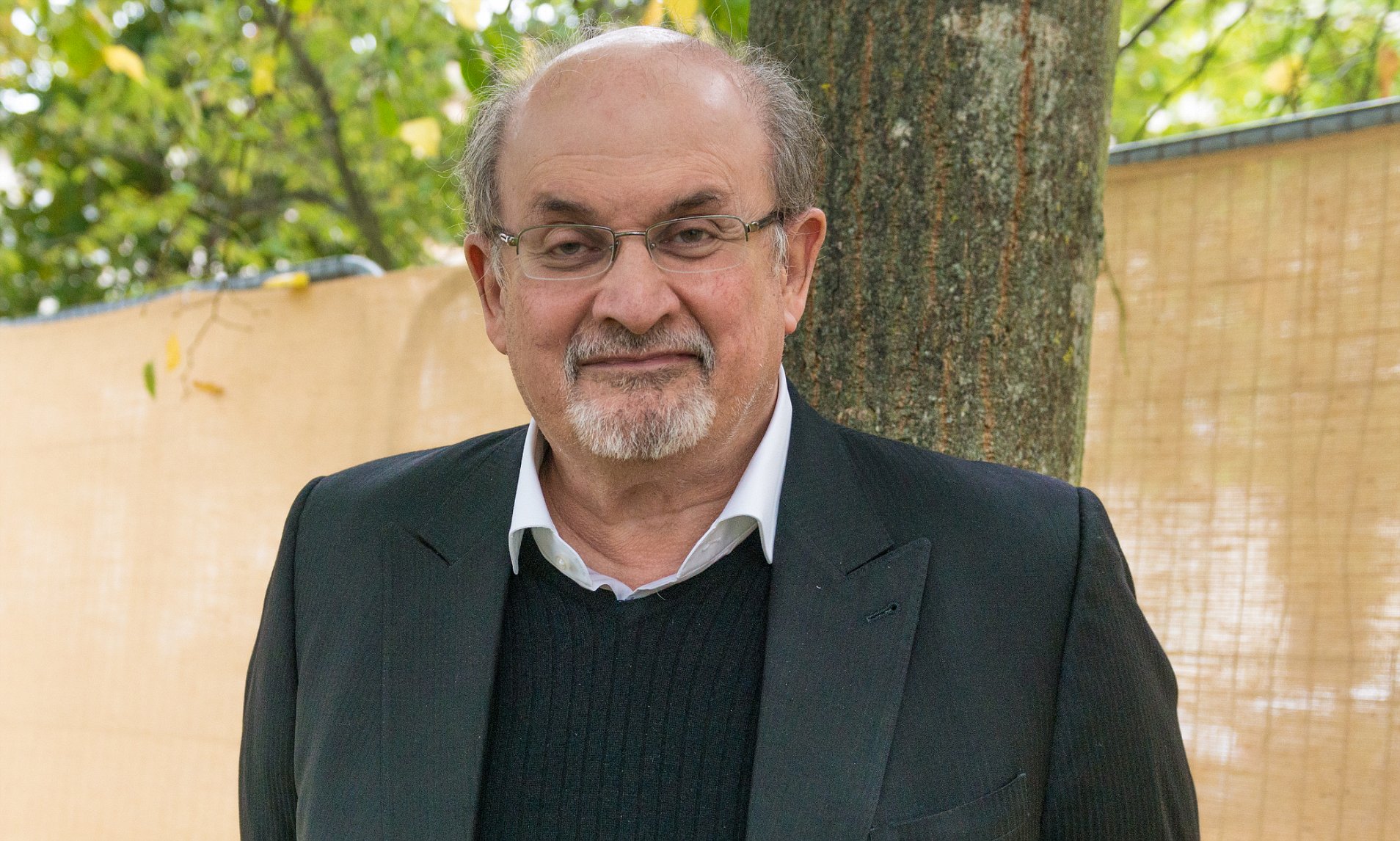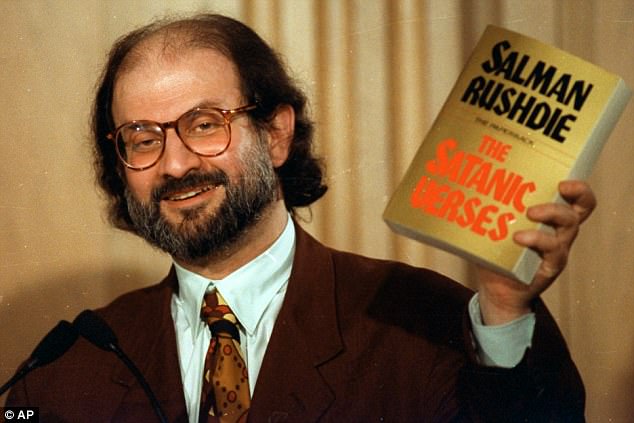After a long period of darkness in which Salman Rushdie seemed to care only to support Hillary Clinton in her unwinnable fight against Donald Trump, coming to support the Saudis in pursuit of this ideology – followed by about a year in which his Twitter profile has remained inactive (still it is, unfortunately) – finally the Indian writer seems to have found again the right path.
Done. You're welcome, #MadamPresident! #imwithher pic.twitter.com/IlsBpjyFsU
— Salman Rushdie (@SalmanRushdie) November 8, 2016
- The Man Booker prize winner said editing the Koran would be ‘a mug’s game’
- At the Cheltenham Literature Festival he slammed it for not being narrative
- The 70-year-old had a fatwa put on his head after publishing The Satanic Verses
He spent more than a decade in hiding after his ‘blasphemous’ novel led a Muslim leader to put a price (a death sentence’s fatwa) on his head.
But almost 30 years after writing The Satanic Verses, Sir Salman Rushdie has risked angering Islamists again by saying he could not face reading the ‘unenjoyable’ Koran.
Asked if Islam’s central text and “holiest” book should be edited to make the religion seem ‘more humane’, the Man Booker prize winner replied: ‘Editing the Koran seems like a mug’s game. It’s not a very enjoyable book because most of it is not narrative. The big difference between the Old Testament, the New Testament and the Koran is that the Koran has the least narrative of them. Only about a quarter of the book is stories. A third of the book is fulminations against the unbeliever and how they will rot in hell. Another third of the book is laws, how you should behave. So, no, I wouldn’t edit it because then I’d have to read it, and I don’t want to do that a time more.’
Sir Salman, who was speaking at the Cheltenham Literature Festival at the weekend, added that he thinks the world would be a better place without any religion ‘because it is an absurdity that gets people killed.’
The 70-year-old spent years living under 24-hour police protection after the publication of his 1988 novel, which was inspired in part by the life of the Prophet Mohammed and ridiculize him and his story.
It provoked protests across the world from outraged Muslims who claimed it insulted the prophet (actually, it does) and accused Sir Salman of mocking their faith (difficult to deny).
The row culminated in February 1989 with Sir Salman being condemned to death by Iran’s Ayatollah Ruhollah Khomeini, who issued a fatwa – a legal pronouncement by an expert in religious law – calling for his execution.
He offered a million US dollars to anyone who would murder the author (last February 2016 the bounty was renewed for $ 600,000, read here for more details).
Sir Salman later blamed the presence of his police guards – part of one of Britain’s most costly and elaborate protection operations – for the breakdown of his marriage to American author Marianne Wiggins.
Though he issued an apology in Iran in 1990 – which was rejected – Sir Salman later condemned Islamic fundamentalism as a ‘project of tyranny and unreason which wishes to freeze a certain view of Islamic culture in time’.
Source: Daily Mail

